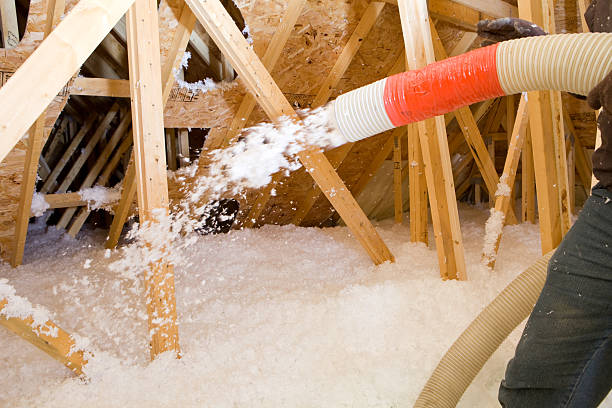
Call Us Today!
508-488-9999
Home Blown-in Insulation & Gutter Solutions
11 September 2023

Blown-in insulation can be an effective sound barrier, depending on the type of insulation material used and the installation method. While its primary purpose is to provide thermal insulation, it can also help reduce sound transmission to some extent.
Here are some factors to consider when evaluating the soundproofing capabilities of blown-in insulation:
Material Type: The effectiveness of blown-in insulation as a sound barrier largely depends on the material used. Cellulose are commonly used materials for blown-in insulation, and they have some sound-dampening properties.
Density: The density of the insulation material plays a significant role in its ability to block sound. Heavier and denser insulation materials tend to be more effective at reducing sound transmission. Some blown-in insulation materials can be installed at higher densities to improve their soundproofing capabilities.
Installation Thickness: The thickness of the insulation layer also affects its soundproofing performance. Thicker insulation can absorb and block more sound waves. Depending on your specific soundproofing needs, you may need to install a thicker layer of blown-in insulation.
Air Gaps: Proper installation is crucial for soundproofing. Gaps or voids in the insulation can allow sound to pass through. Ensure that the insulation is evenly distributed without any gaps.
To learn more about the benefits of installing cellulose blown-in insulation for your home, contact Custom Insulation Company, Inc.